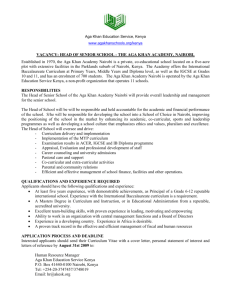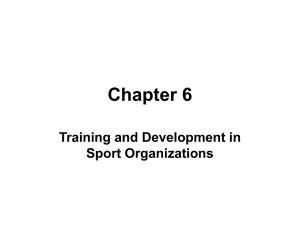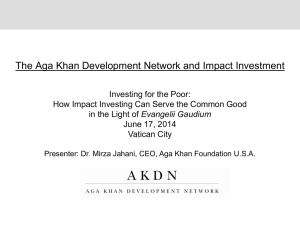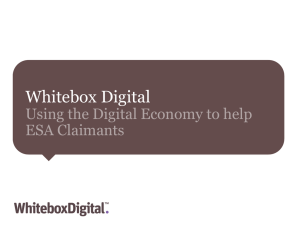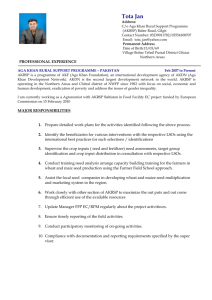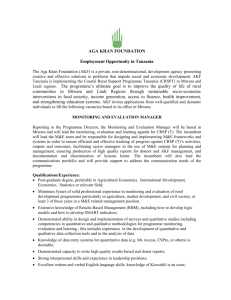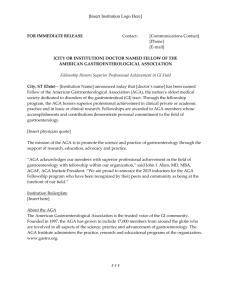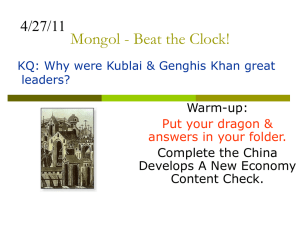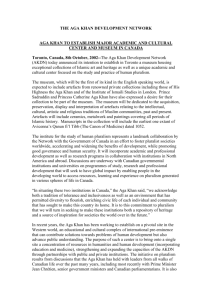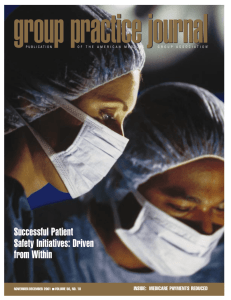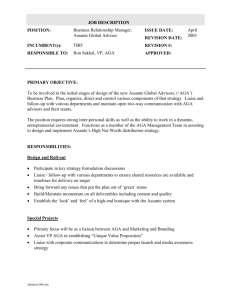Project Update - Community Innovations for Polio Eradication (CIPE)
advertisement
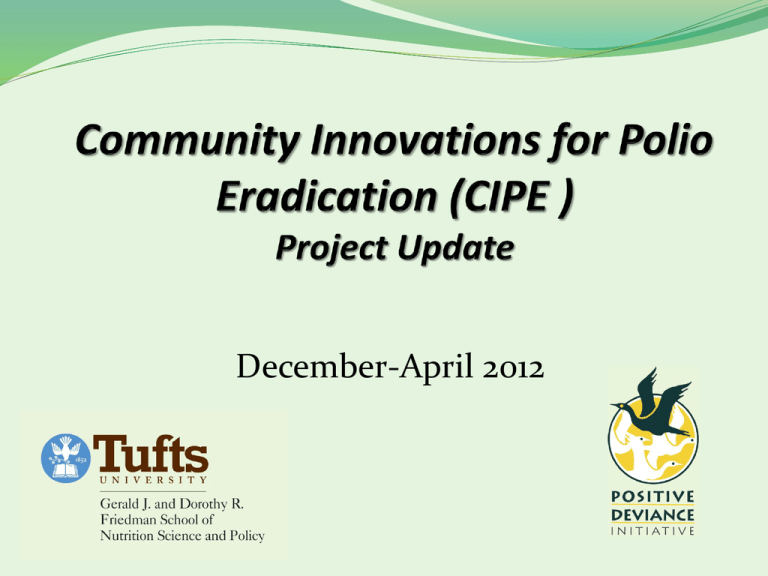
December-April 2012 2 Outline CIPE Project Goals Field-Visits Objectives Outcomes Assets Challenges Next Steps CIPE Project Goals PD: Focusing on what already works 1. To identify viable existing local solutions to eradicate polio in selected UCs in Gadap Town 2. To set the stage for dissemination of discovered solutions & strategies with stakeholders 3. To build local capacity for using the PD approach to eradicate polio 5 Field Visit Objectives Karachi: December 2011 and March/April 2012 Meeting with and orienting stakeholders and local leadership Establishing partnerships and defining roles and responsibilities Conducting environmental scan and assessing local capacity for applying PD methodology Key Outcomes: Visit I (Dec.2011) Protocol meetings with GPEI Spearheading Partners Document and data review Field visits - observation of campaign activities & discussions with managers and vaccinators Partnership development – Spearheading Partners, MOH, Aga Khan University, HANDS, other NGOs (roles, communications and planning team) Selection of high-risk sites: Gadap Town (UC-4 & UC-8) Development of draft conceptual framework Development of draft training plan Key Outcomes: Visit II (March 2012) Solid partnerships established with Aga Khan University and HANDs 37 people from HANDS, vaccinators, supervisors and community leaders attended 5 day PD training Trainees transformed from passive listeners to active participants Participants gained skills resulting in increased trust when interviewing potential PD’s Selection of 8 trainees (4 for UC-4; 4 for UC-8) to conduct PD inquiries in May/June Key Outcomes: Visit II (cont.) Current situation in neighborhoods reviewed Participants gained familiarity with PD concept Participants built skills in using the PD tools PD individuals & groups identified PD inquiry tools developed (draft) HANDS Staff 10 Assets Experienced Urdu speaker as PD facilitator Highly motivated, already oriented in PD and well-regarded NGO partner Competent and supportive HANDS staff to support the project and build local capacity Excellent rapport of the HANDS staff and selected trainees with the identified communities Motivated trainees with demonstrated ability to find and begin interviewing PDs Guidance and support from Aga Khan University Convenient & efficient training location and services PD Inquiry Team- Gadap Union Council 4 (UNICEF Community mobilizers 2, WHO Area in charge 2, HANDS staff, LHW 3) Challenges Security and political instability in Karachi Communication – conference calls, planning team, translation/interpretation, documentation Coordination with MOH/WHO/UNICEF Rapidly changing environment (policies, staffing, roles, etc.) Availability of management-level stakeholders Challenges (cont.) Periodic absence of UNICEF/WHO participants in the training due their organizational meetings Gaining access to data and documents Gaining access to one of the identified (highly sensitive) communities in Gadap 15 16 Next Steps Establish routine conference calls with Team Conduct orientation meeting with community stakeholders in Gadab town Strengthen relationship with the identified communities in Gadap (HANDS) Conduct 20 PD inquiries Refine & finalize the PD inquiry tools Continue training on use of PD tools (distance format) Begin analysis of PD inquiries Plan for training in July Engage with evaluators for analysis phase Contact Information Lead investigator: Roger Swartz (PDI) at: roger.swartz@tufts.edu Mohammad Shafique, Lead PD facilitator at: shafique06@gmail.com Monique Sternin, PD advisor at: monique_sternin@hotmail.com or monique.sternin@tufts.edu
